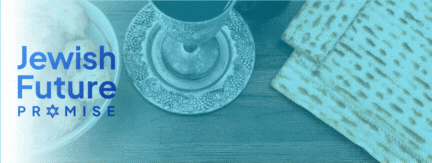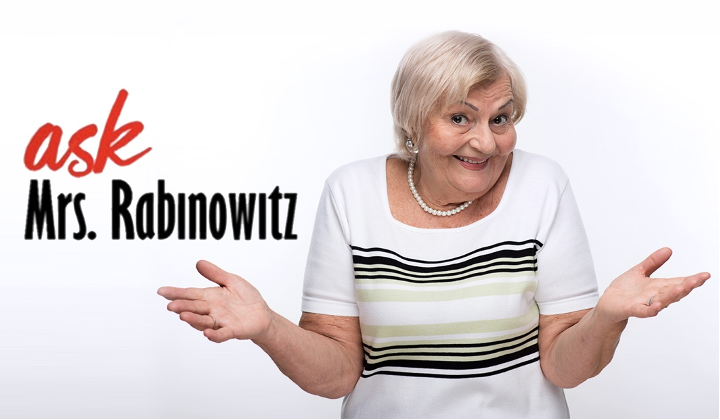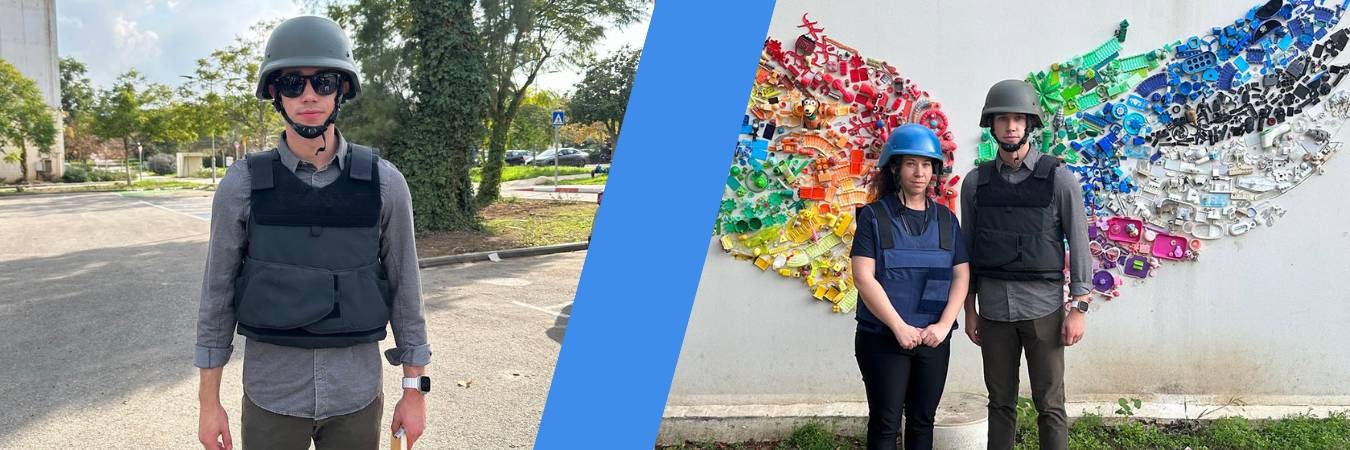If the Jewish future is important to you, please click here and share this email with your family. Welcome to the April edition of the Jewish Future Promise Newsletter. Promisers to date: The Jewish Future Promise reached 52,676 Signers, and the Jewish Youth Promise now has 20,668 Youth Signers. 
Chag Pesach Sameach! The end of the Seder is always a powerful moment. Dinner is finished, and the door is open for Elijah. You’ve drank your last cup of wine, sung the traditional songs with your family, and are about to go to sleep.
But before you conclude, the last phrase you say is L’Shana Haba’ah B’Yerushalayim, or “next year in Jerusalem.” This year, still just months removed from the horrors of October 7, “next year in Jerusalem” takes on a much greater meaning than it would at a normal Seder.
My hope for Passover in 2024 is that we can say “next year in Jerusalem”, and hope for peace and prosperity for the country of Israel.
Mike Leven
Founder, The Jewish Future Promise

Ask Mrs. Rabinowitz 
Dear Mrs. Rabinowitz: Last Passover, my 18-year-old cousin Larry refused to open the door for Elijah, claiming that if the prophet ever did show up, he could ring the bell or call Larry’s cell phone. I think this is crazy, but I’m not sure what to say to my cousin.
Mrs. Rabinowitz: My first question is how would Elijah get Larry’s cell phone number? Did they meet at a Hillel event? Craigslist? Your cousin’s clearly a moron. But — I actually agree with him that the door should remain closed — as long as he is on the other side of it.
Dear Mrs. Rabinowitz: When I was Bat Mitzvahed 40 years ago, someone planted a tree for me in Israel. Now I’m going over there for the first time. What are my odds of finding it?
Mrs. Rabinowitz: First — let me ask you something. What do you think the chances are of me and George Clooney getting married? I’m not really sure either — but they’re better than you finding the tree.

How To: Passover Conversation Cards
As we gather around the Passover Seder table, let us embrace that Passover is a time to cherish our Jewish heritage and fortify the bonds that unite us. Our Passover Family Conversation Cards offer a heartwarming invitation to engage in meaningful dialogues, weaving together the timeless threads of our traditions, values, and stories.
With each thought-provoking question, we embark on a journey of rediscovery, unearthing the rich tapestry of our collective experiences. These cards are not merely a set of queries but a catalyst for heartfelt connections, that can spark conversations that transcend the boundaries of age and bridging generations.
We ask that we all embrace this opportunity to nurture the roots of our identity, to ensure that the legacy of our ancestors continues to thrive.

Promiser Spotlight: Aidan Bloomstine 
What inspired you, an American college student, to travel to Israel in January 2024 through the Maccabee Task Force?
Through my Christian upbringing, I developed a reverence for Israel and the Jewish people. When I arrived as a Freshman at USC, I found a USC Hillel community that has welcomed me with open arms ever since. When October 7, I knew that now was a time to step up for my grieving friends just like they stepped up for me.
I don’t often find myself wearing a Kevlar vest and a helmet in the middle of a war zone, but seeing how hurtful and destructive the on-campus narrative was to the Jewish community after October 7, I felt the need to educate myself further and learn those stories firsthand.
I never felt threatened during my time there; I feel more unsafe walking from campus to my apartment than I do going to Israel. I wanted to look Israelis in the eye to tell them that there are American students like me who support them.
On one of the most difficult experiences of the trip
I will never forget going to the national cemetery at Mount Herzl and seeing all the freshly dug graves for fallen IDF soldiers. The graves were all in Hebrew apart from the soldiers’ ages listed numerically. 19, 20, 21, 18… all the soldiers who died were my age. I thought about if I was born in another part of the world, that could be me.
But in this sad moment I also saw the reverence Israel and its citizens have for life and humanity.
How can we better educate younger generations about Judaism and Israel in 2024?
Take the time to educate yourself and humanize all sides. We shouldn’t have to teach individuals how to properly educate themselves on how not to be antisemitic. Nonetheless, we are facing a tough battle online. TikTok, Instagram, and social media platforms are set up for other narratives to dominate students’ feeds.
You can spit out dates and statistics as much as you want, but it’s different when you try to learn the Jewish and Israeli people’s stories and experiences and hear the emotions they feel.
Aidan Bloomstine is a junior studying public policy at the University of Southern California. See Aidan’s full promiser spotlight article here. |
